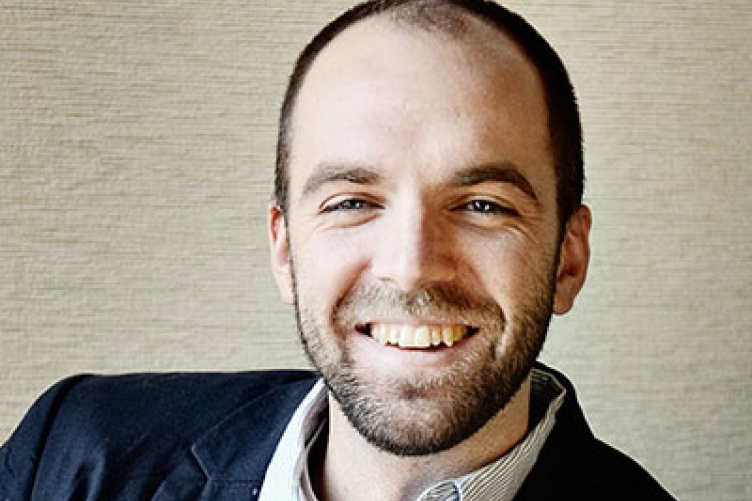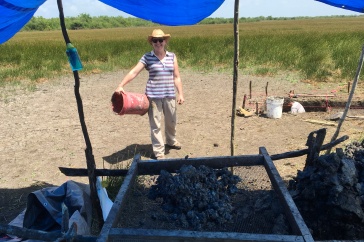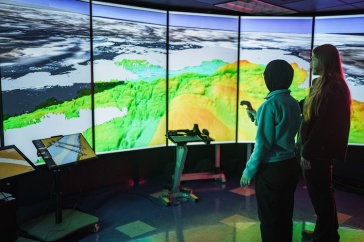
Writer Chris Outcalt, ’06, has been named the 2013 Donald Murray Visiting Journalist at the University of New Hampshire. He will discuss his career as a magazine writer and share his experiences with journalism students during his weeklong visit beginning April 8, 2013. His lecture, “Great stories have a soul and other things I’ve learned as a journalist,” is Tuesday, April 9, 2013, at 5 p.m. in MUB Theater I. The event is free and open to the public.
We asked Outcalt his thoughts about his lecture and his career, his time at UNH, and what he would say to aspiring journalists. Here’s what he had to say.
What will you be discussing with UNH students during your visit here?
CO: Like any writer, I’ll probably be thinking about this right up until my deadline. But I hope to tell the students a story about my career. Hopefully they can learn from knowing the path I’ve taken. I hope to convey that I feel lucky and excited to live the lifestyle of a journalist, and that it’s something I take very seriously. I think you can learn a lot from this profession, from telling people’s stories.
I was recently talking with a colleague about great stories and storytelling, and in our discussion she mentioned how she thought great stories have a soul. I was struck by that idea. I couldn’t agree more. So, I plan to talk about how I try to find those particular stories, the ones with souls, and also talk about what excites me about the process of finding them. I think there will always be a place in this world for quality storytelling. So, that’s what I focus on: trying to learn how to tell great stories—stories that have a soul.
What do you enjoy about being a magazine writer?
CO: Not to harp too much on storytelling, but that’s what I’m interested in, so...I’ve found that working at a magazine is a wonderful place to tell good stories. We tell stories in all kinds of different ways. Whether it’s 8,000-word narratives, photo essays, videos, short profiles, sometimes even a single number can tell a story. A smart editor and colleague once told me that a magazine is a collection of ideas. I like that description, and I like being part of the process of putting together that collection every month. In doing so, it pushes me—I hope, anyway—to be a more thoughtful person, and I think we could all benefit from doing a little more thinking.
I’m also incredibly lucky to work with a ridiculously talented staff. I learn new things every day from my colleagues. I still have so much to learn, but I wouldn’t be half the journalist I am today if I hadn’t been lucky enough to work with this group here in Denver. How did your education and experience at UNH prepare you for your career?
I remember my time at UNH fondly. I felt very comfortable as a student at UNH. For me, the size of the university was just right: big enough to run into a broad range of ideas and people and small enough to develop meaningful personal relationships with friends and professors. It was a great place to discover what I wanted to do with my professional life. I actually entered UNH my freshmen year thinking I was going to go into biochemistry. After a semester I had had a change of heart. I took an entry-level newswriting course out of curiosity and really enjoyed it, so I just kept going on that path. I guess, in a way, UNH provided me an environment in which I was comfortable taking risks. That’s a cool thing. Everyone should take risks every now and then. Failing is learning.
More specifically to journalism, my professors at UNH and my former colleagues at the Portsmouth Herald, where I did my internship, taught me how to be a solid reporter—what questions to ask and how to ask them. They taught me the importance of being accurate. I could go on, but I rely on that foundation of skills every day. I don’t think you can be a good nonfiction writer without being a good reporter. UNH taught me what solid reporting looks like.
What would you say to UNH journalism students seeking a career as writer/reporter?
CO: Listen. Listen. Listen. Seek out good people, people who are producing the kind of work you admire, and listen to them. Whatever they’re talking about, whether it has to do with journalism or not, just listen. Then think about what they said. I mean, really think about it. What are they talking about? What have they done? Why have they been successful? We can all be better listeners. Do the same thing with good writing. Read a piece you love and then really think about why it’s good. How is it structured? Why is it structured that way? I try to do this stuff all the time.
Don’t be afraid to fail. If you’re not failing, you’re probably not learning. Be quick to admit what you don’t know. Find ways to take on assignments that excite you, maybe even scare you a bit. Work your ass off, but do it strategically. Learn what part of the day you’re most productive (about 7:30 a.m.-11:30 a.m. for me), learn how to budget your time (I’m still figuring this out), don’t try to tackle too much (I do this sometimes). I’m pretty convinced that the people who accomplish exceptional things in this profession work incredibly hard and do so in a strategic way.
And, this is a bit cliché, but probably worth mentioning: Don’t forget to have fun. Being a journalist is a great gig. If you don’t get excited about interviewing people, really listening to them, and finding creative, strategic ways to tell their stories, you’re probably in the wrong profession.
Originally published by:
UNH Today
Courtesy photo.
-
Written By:
Staff writer | Communications and Public Affairs
















































